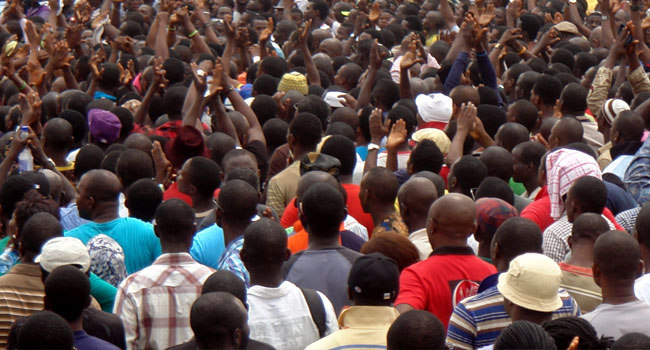CEM INSIGHT, ECONOMY | The age long argument that economic statistics doesn’t all represent economic transformation and well-being of people is regaining attention on a serious momentum and a wider range. Some countries in a small but growing network have began to champion this course of economic policies that directly affect core state of livelihood of people.
Nigeria is the biggest economy in Africa and after all the statistics, what is the bottom line for the Nigeria people? It is home to one of the largest percentage of poor people according to global index. The era has come when economic strength is no longer going to be dependent on GDP figures.
The call is now strong to abandon the idea that the percentage change in gross domestic product is a good indicator of progress , and instead reframing economic policy to deliver quality of life for all people in harmony with environment.
‘’The need for a new economic model has never been clearer” Scotland’s First Minister Nicola Sturgeon said to CNBC. This is upon directing attention on the multiple global crises, such as the climate emergency, biodiversity loss and cost-of-living crisis which ‘’raise fundamental questions about what we value – and what our economies are actually for”
The European Union in their 8 May 2021 press release recognized the need to shift to a well-being economy; and the World Health Organization launched an initiative that calls for well-being to be at heart of economic recovery.
‘’We need to shift from power, profit and patriarchy to people, planet and prosperity’’; said Sandrine Dixson Decleve, Co-President of the Club of Rome. Countries on this train are critically identifying and focusing on priority areas to improve well-being to the citizens.
A few months ago, New Zealand published its first national Well-being Report, a country leading other countries which include Finland, Iceland, Scotland and Wales called Well-being Economy Governments partnership. This coalition aims to transform economies around the world to deliver shared well-being for people and the planet by 2040.
In the report, New Zealand, among others, has been able to identify three priority areas in need of improvement: mental health, educational achievement and housing affordability and quality. Chief Economic Advisor at the Treasury of New Zealand, Dominic Stephens told CNBC; ‘’We want to look beyond GDP to understand progress, but we don’t have a singular measure of Well-being, so we need to look across a range of indicators and evidence to understand progress in this broader sense’
‘’This helps us all to understand where New Zealand is doing well, where we are lagging and how well-being is experienced differently for different people in our country.’’
Countries like Nigeria celebrates when there is growth in GDP having been considered as a sign of economic positivity and health. Outcomes have shown that growth in GDP says one thing while reality speaks a different language.
This is because, a seasonal activity in a subsector is capable of altering the overall GDP figure upward, which doesn’t even sometimes mean an improvement in the overall economy talk less of improving the well-being of the people.
It may also be that the activities in the subsector that contributed to the growth of the GDP has left residue in the atmosphere that is seriously affecting the health of the people and reducing their well-being. US Senator Robert F. Kennedy once said a country’s GDP measures everything ‘’except that which makes life worthwhile.’’
Critics of GDP have argued that the indicator is misleading because it measures ‘’the good, the bad and the ugly and calls it all good.
GDP does not, for instance, take into account unpaid work, nor does it distinguish between economic activity which contributes positively or negatively to the health and well-being of people and the natural environment
What are the focus areas that need attention to improve Nigerians well-being? Insecurity is the first threat to human well-being; this doesn’t need research in our current state. Nigerians are feeling insecure and living in fear. A concerted effort must be directed here not only as a way to improve production, but to create confidence in people as it relates to mental health.
Food non-affordability is assuming a plague among Nigerians and increasing vulnerability to hunger-induced health challenges. All indices of food scarcity are obvious and glaring. While insecurity hampers farming activities, high cost of diesel increases cost of transporting the available. A combination of the two is spiking food inflation.
Focusing on well-being of the people all comes to driving every policy to affect daily existence of citizens to ameliorate their suffering and stimulate their prosperity, outside which is a mere public show of activity.
There are statistics that local production of rice has increased in Nigeria, yet cost of a 50k of the same product is selling for N45,000. This is a far deviation from the economy of well-being. The policy to boost local rice production should be driven to make the product available locally at an affordable price so the nutrition of citizens can improve.












